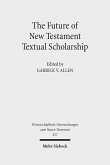The Pauline epistles provided the theological inspiration for the religious revolution known as the Protestant Reformation, the legacy of which was still being given form during Cotton Mather's lifetime and career. Mather's commentary gives voice to the ongoing struggle between Protestants and Catholics, and between Protestants of many stripes: Puritans and Anglicans, Calvinists and Arminians, Trinitarians and Socinians, Protestants of the state and the sects. In his commentary, he also dwells on eschatological topics, ecclesiology, the papacy, classic doctrines of the Reformation such as faith, grace and election, and perhaps above all, on the piety of practical Christian living. But another revolution was also taking place during Mather's lifetime, one that was equally important for his thought: modernity. Mather's Pauline commentary was profoundly shaped by this development, as he attempted to discover the meaning of Paul's writings in their original context, and as he attempted to make sense of those writings against the shifting backdrop of new discoveries in natural philosophy, history, and cultural studies. He and his sources appropriated the wealth of materials available to them in the Republic of Letters: Jewish rabbinic sources, Renaissance philology, the growing body of comparative religious studies, the emerging fields of astronomy, earth science, and agronomy, empirically-rooted historiography as well as the treasure-trove of materials available for the comparative study of cultures, from the ancient Near East, Greece, and Rome, to contemporary European and New World peoples. (1663-1728) The leading New England theologian of his period, Mather was both a defender of Reformed orthodoxy and an intellectual innovator, who propagated the Pietist renewal of Protestantism and embraced ideas of the Early Enlightenment. Best known for his Magnalia Christi Americana (1702), he published more than 400 works in various fields including church history, natural theology, and medicine.
Dieser Download kann aus rechtlichen Gründen nur mit Rechnungsadresse in A, B, BG, CY, CZ, D, DK, EW, E, FIN, F, GR, HR, H, IRL, I, LT, L, LR, M, NL, PL, P, R, S, SLO, SK ausgeliefert werden.









